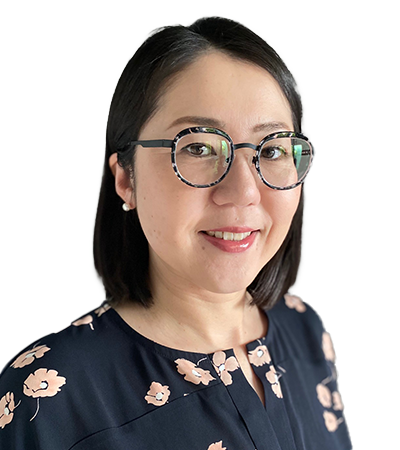
 Success Stories
Success Stories
Miki Itano Boase
Research Assistant
“I want to stress how good this course is for people who are new to Canada, or who have even been here for some time. Getting a job for the first time in a new country is hard. This course provides a strong base of communication knowledge that support employment skills.”

![]() Success Stories
Success Stories
Miki Itano Boase
Research Assistant
“I want to stress how good this course is for people who are new to Canada, or who have even been here for some time. Getting a job for the first time in a new country is hard. This course provides a strong base of communication knowledge that support employment skills.”

Written by Sharon Aschaiek
Workplace Communication Skills for Interprofessional Health Care Teams
Free workplace language training opens door to new career
A unique pathway for newcomers to Ontario to prepare for employment has allowed Miki Itano Boase to build a meaningful career.
Boase is from Japan and since 2011 she has lived in Toronto with her husband and two children. After her youngest started school in 2019, she focused on searching for employment, and researching programs and resources to help her navigate the job market.
She discovered Occupation-specific Language Training (OSLT), free workplace communication courses for internationally educated or experienced newcomers. Offered in-class, online or both, these concise, practical training options focus on the communication skills of workplaces in five sectors in Ontario.
One course in particular appealed to Boase: Workplace Communication Skills for Interprofessional Health Care Teams. The course is open to those with training or experience as a dietitian, nurse, occupational therapist, physiotherapist or social worker. Boase has a PhD in social work from Japan. While she wasn’t sure if she wanted to work in the field as a social worker, she knew the training could still be useful in a different employment context.
Taking the course in person and online at Centennial College over several weeks that spring and summer, Boase learned about health-care workplaces such as clinics, community agencies and hospitals. Written and verbal communication skills were covered in a range of contexts: interacting with professional peers, advocating for a client, even networking with potential employers.
What is particularly useful about OSLT training is its focus on the cultural aspects of workplace communication, like the concept of ”small talk”, asking a colleague for help, or contributing to a team meeting. And for any newcomer, it’s especially helpful to learn how to communicate with a manager, because what they know from their home country could be very different.
“I did learn so many communication skills, and how to understand the cultural orientation of others,” Boase says. “The course was very thorough and well organized, and my confidence level really went up.”
This kind of learning requires practice: participants take part in mock team meetings and deliver presentations to classmates to make the learning stick. And the small class size allows for dynamic discussion and regular feedback from the instructor. A bonus for Boase: expanding her professional network to include her classmates, with whom she has shared job leads and encouragement.
In the fall of 2019, Boase was offered a job as a research assistant at the Diversity Institute at Toronto Metropolitan University (formerly named Ryerson University). The institute conducts research to address the needs of diverse Canadians in employment and advance knowledge of the barriers faced by immigrants, people with disabilities, and other underrepresented groups. Boase says she regularly uses the transferable communication skills she learned in OSLT in her job.
“I want to stress how good this course is for people who are new to Canada, or who have even been here for some time,” Boase says. “Getting a job for the first time in a new country is hard. This course provides a strong base of communication knowledge that support employment skills.”

© OSLT 2025. ALL RIGHTS RESERVED.